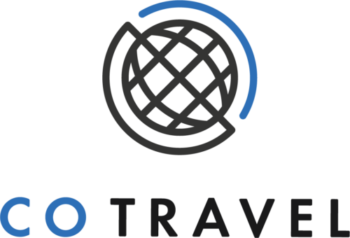Written by – Sarah Robertson TNW 23 September 2020
The announcement that all travellers will be asked to download the COVID Alert South Africa mobile app as part of level one lockdown regulations has been met with resistance by some South Africans who have been circulating messages on social media warning against the use of this app. Travel News spoke to tech experts to find out if these privacy concerns were justified and how effective the app could be in curtailing the spread of the virus.
“Big please, if you are planning to install the Covid-19 Tracking app on your phone as suggested by the government… I ask you to please remove me from your contact list before installing this app on your phone. This app asks permission to access all of your contacts. You DO NOT have my permission to use my name, phone number or Facebook contact in connection with your app to identify or locate me. I hope you understand – I do not consent. Copy-paste if you feel like this too,” says the message circulating on social media this week.
But this message appears to be based on a misunderstanding. Carl Townsend, coo of tech company, Brandmed spoke to Travel News. “The South African COVID Alert app is built on a framework that was developed by Google and Apple, designed specifically to ensure anonymity. When you install any app it is very clear about exactly which permissions the app is requesting. An app cannot access phone features that it does not have permission for. As the COVID Alert app has no functionality to access contact lists, and does not request permission to access these, the concerns expressed in this social media message are not justified.”
The app works by exchanging anonymous random key-codes with other phones explains Carl.
“When you are in a pharmacy queue you are often assigned a random number and are called to the counter when your number is called. The pharmacy wouldn’t know your name, address or best friend’s shoe size unless you were to tell this to the man at the counter. The app works on a similar principle. If random ID #227 and #121 were both at the same restaurant at the same time and 121 later tests positive for COVID, user #227 can be notified about potential exposure without the app knowing the identity of user #227 or his friend’s telephone numbers,” says Carl.
He stresses that, in addition to the app offering complete privacy, it is completely voluntary and can be installed or uninstalled at the user’s discretion. He encourages responsible South Africans to install it, whether or not they are planning to travel abroad, as studies in the UK have shown that it is only effective if a minimum of 60% of a population make use of the app to track the virus’s spread through a community.
When asked about the concerns that the app does track your movements, Carl responded that surely an anonymous tracking app would give you more privacy than the existing manual government-regulated tracking processes that required you to write down your name, phone number, address, medical symptoms and ID number on a form at every hotel, airport, shop or restaurant that you visited.
“The bottom line is that there are far easier ways to track a person’s movements than through an anonymous COVID app. Google Maps, for example, keeps a record of every place you visit with your phone and True Caller is an example of an app that does ask permission to access your contact details,” adds Carl.
Founder and chief executive of The Digital Law Company, Emma Sadleir, was quoted in media reports this week encouraging South Africans to download the voluntary app. In relation to privacy concerns she explained that as the app made use of anonymised data (the information taken does not attach to a specific person) it fell outside of POPI requirements and did not pose a concern.
Chief information officer of Tourvest Destination Management, Dieter Holle, agrees that the app does not pose any privacy concerns to users and says travellers from South Africa’s international source markets are unlikely to be put off by the new South African regulations, as they have all been using similar apps for months now.
“The app anonymises all information and rests on the internationally developed Apple and Google technology. In theory, the app is great as it creates an anonymous digital network to track the virus but, even in First World countries like Germany, the apps have had limited success, as people have not participated on a scale large enough to effectively track all exposure. There is no way to force people to download the app or to travel with a phone, which renders it somewhat ineffective. In a country like South Africa there is less access to smartphones and data, which means the app is unlikely to have any meaningful impact on curtailing infection. It does provide some confidence that we are taking all possible steps to fight the pandemic though, which is helpful for the rebuilding of traveller confidence,” say Dieter.

